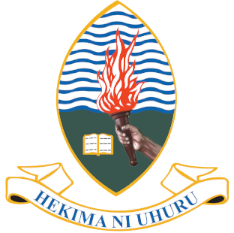MSc in Health Informatics (MSc HI)
Objectives and contents
This is a two-year evening programme aiming to address the gap, both knowledge and practical, between the areas of integrated health and modern information and communication technologies (ICT) in order to address local and national health needs through improved access to health information. The program is designed to provide students (being health professionals, scientists, educators, policymakers, and managers) with competence in health informatics and digital health solutions. Specifically, the program is designed to:
- Improve the Informatics capability of health institutions in order to advance research and health surveillance activities by training key researchers and institutional support staff in those institutions in the use and development of modern informatics technologies in the health sciences.
- Enable students to acquire a range of informatics concepts and skills, and public health principles to improve the performance of health provision, health information system (HIS), and processes and mechanism of health planning and management.
- Enable students to acquire knowledge, skills, attitudes and experiences necessary to develop and manage ICT-based health information systems tailored to the needs of the Tanzanian and related context in developing countries.
- Expose students to knowledge that enables them to comprehensively plan, undertake, evaluate, and monitor health informatics research projects and to provide technical services to health professionals and agencies for both private and public sectors concerned with the management of information as a basis for health policy formulation.
Expected learning outcomes
Upon completion of the programme, graduates will be able to:
- Apply knowledge and competence in fundamental areas of public health management at different local levels –facility, district, region and national level, as well as internationally.
- Apply knowledge and competence in fundamental areas of health information systems, their designs and development issues.
- Design and manage Monitoring and Evaluation initiatives for different projects, especially those related to health management.
- Analyse different academic perspectives related to health information systems such as scaling, integration, standardisation and standards, information infrastructure and others
- Manage health information systems and changes in organizations.
- Conduct credible researches related to health informatics in different areas.
- Analyse, criticise and compare different digital solutions meant for health management in the health sector.
- Analyse, evaluate and synthesize research and apply theoretical ideas to practical settings..
Career prospects
Graduate of MSc in Health Informatics can assume different roles in Informatics and Health-related organisations such as:
- Innovators and designers of digital health solutions
- Leaders of HIS initiatives and digital health systems implementations
- Digital health solutions consultants
- Evaluation experts of HIS and digital health systems
- Researchers in HIS and digital health systems
- Health Information systems managers
- Managers of digital medical records and hospital information systems in big hospitals.
Also, the acquired technical and research skills give graduates competitive advantages to venturing into academia.
Entry Requirements
To be eligible for admission into this programme, the student should satisfy the general University minimum postgraduate entry qualification with the following additional requirements:
Direct Entry Qualification:
An undergraduate degree in Computer Science or a related field from a recognized institution with at least a lower second class award (G.P. A of at least 2.7 out of 5).
OR, an undergraduate degree in health or allied sciences from a recognized institution certified by TCU with at least a lower second class award (G.P.A of at least 2.7 out of 5).
Equivalent Entry Qualification
A Postgraduate Diploma in a relevant and respective field (either computer science-related or health sciences) from a recognized institution certified by TCU with at least an upper second class award (GPA 3.5 out of 5). In addition, candidates must have Principal level passes in Physics and Mathematics in ACSEE.
Registration Process
Detailed information about the registration process and the required supporting documents is available on the main UDSM website under the Directorate of Postgraduate Studies. Open the link https://udsm.ac.tz/directorate-postgraduate-studies
Fee Structure
For Tanzanian students, the school fee for this programme is TZS 6,412,500/= for 24 months (2 years) by coursework and dissertation and TZS 4,200,000 by thesis. For international students, the fee is USD 8,040 for 24 months (2 years) both by thesis and coursework and dissertation. The fee can be paid in 2 instalments annually or in 4 instalments (per semester).
The University may change schools fees in each new academic year. Therefore, for accurate/ updated information about fees and other related direct costs paid to the University please visit the University Webpage on the fees structure for postgraduate programmes under CoICT. See the Registration Process page https://udsm.ac.tz/directorate-postgraduate-studies .
For more information about this programme please contact the Department of Computer Science and Engineering by email through cse@udsm.ac.tz or Telephone +255(0) 222700225. Otherwise, you are welcome to visit us to learn more about this programme at CoICT Kijitonyama Campus along Alli Hassan Mwinyi Road, Block A Room 002. We are open Monday to Friday from 08:00 am to 04:00 pm, except weekends and public holidays.
